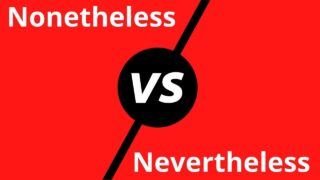“I’m really confused.” “I can’t understand this.” “This is too hard for me!” These are different phrases we usually utter when we’ve got ourselves stuck into something we can’t figure out. But have you noticed how mainstream these phrases sound? Surely, if you want to expand the horizons of your language, speak more eloquent English …
English
From landlines to multi-platform messaging apps like WhatsApp, the telecommunications industry has come a long way. But one thing that remains fairly constant is the area codes that precede phone numbers. While most area codes are assigned to specific places, some are set aside for special services which include but are not limited to toll-free …
You’ve been working hard at learning how to write poems, and now you think you might be ready to submit some of them to a journal. This is an exciting step, but make sure that you don’t get so excited that you neglect to read the guidelines for how to submit. One of the things …
Although trickier than coordinating conjunctions, subordinating conjunctions are great language devices too. Why so? Well, they simply make writing and speaking more organized, if not proficient. Yes, the term used for these grammatical elements might be a bit intimidating. But, you need not worry because you surely have heard of these things before. Did you …
“Coordinating conjunctions.” What are these things again? I’m pretty sure I’ve heard of them before. Oh, wait. Aren’t they those kids who are obsessed with superhero comics?” If this sentiment sounds familiar, then you are on the right page right now. Roughly speaking, coordination is one of the fundamentals of grammar. Needless to say, it …
Here we go again, asking trivial matters such as the difference between linguistically-luscious words like “nonetheless” and “nevertheless.” Luckily enough, any concern like this is our daily bread here at Linguaholic because, for us, maybe for you too, language is nourishment. We kind of breathe language as well, so to speak. So, worry no more …
At times, we do some things without thinking at all. But, interestingly enough, we also tend to forget how to express this kind of idea in words. We may have to discuss this event in different contexts. So, there is a need to know how to describe this behavior in conversational, literary, and technical terms. …
Who doesn’t like weekends? We all love weekends because we don’t have to set our alarm for the next day when they come. We get better sleep on weekends because we know that we are free to do pointless things at our own pace. That said, sending positive weekend wishes to the people we care …
Using commas with the vocative case is one of the first things we learn at school when it comes to writing classes. That’s how important these types of commas are. But why not? Just like periods or full stops, commas are actually some of the hardest punctuation marks to master – even among adults. To …








